'The goverment took away our lives'
Jhon Perez
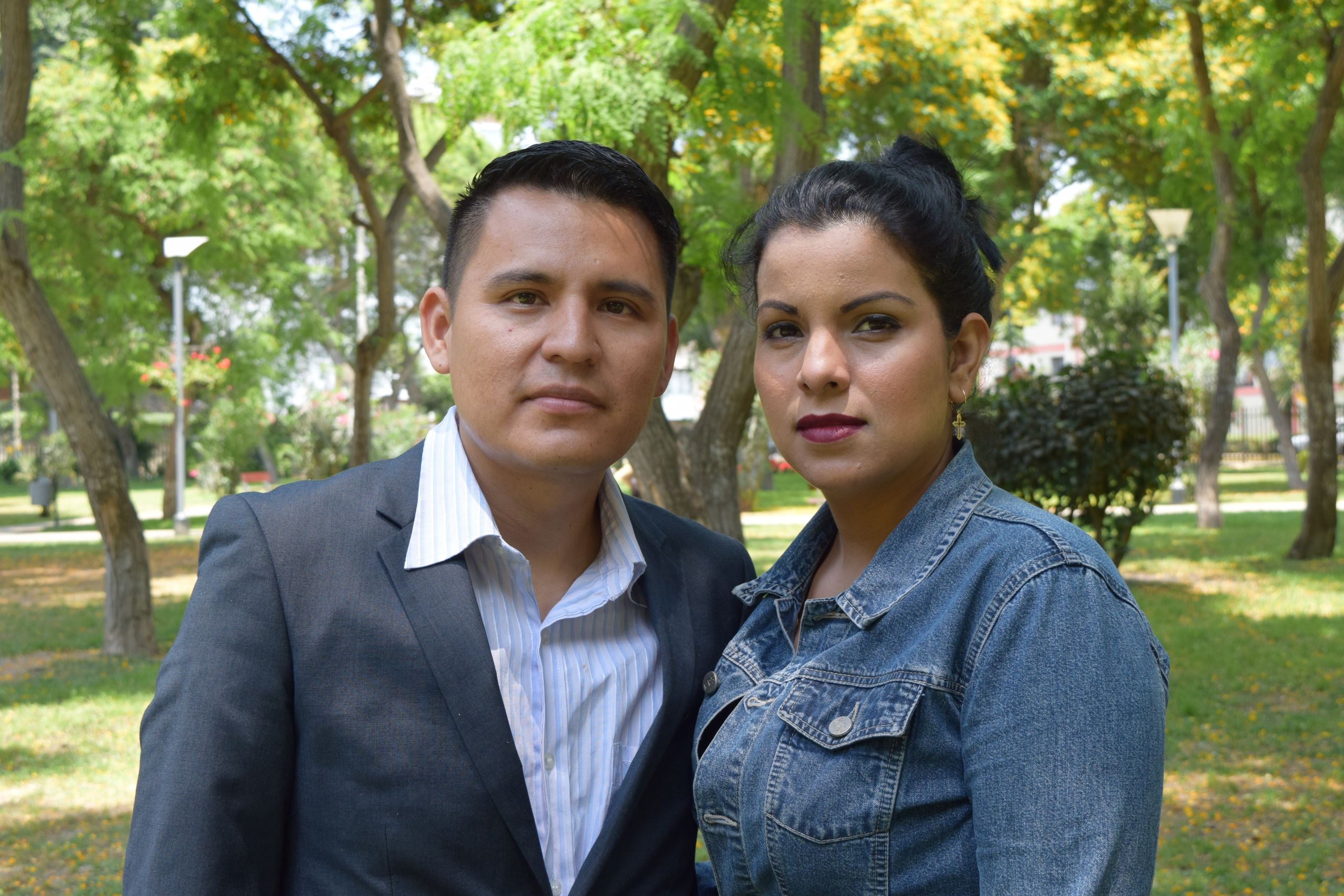
Jhon Perez life's dreams were crushed by the government.
The shortages of food and medicine made Venezuela an unsuitable place for his family.
He would wake up every day not knowing if was going to be able to feed his 3-year-old son.
"We had a life plan but the government took it away from us", he says vehemently, "I really don't understand how they can be so evil", he says emotionally about the government led by Nicolas Maduro.
Almost forced out by the terrible conditions in Venezuela, him and his wife, Johanna, decided to leave the country.
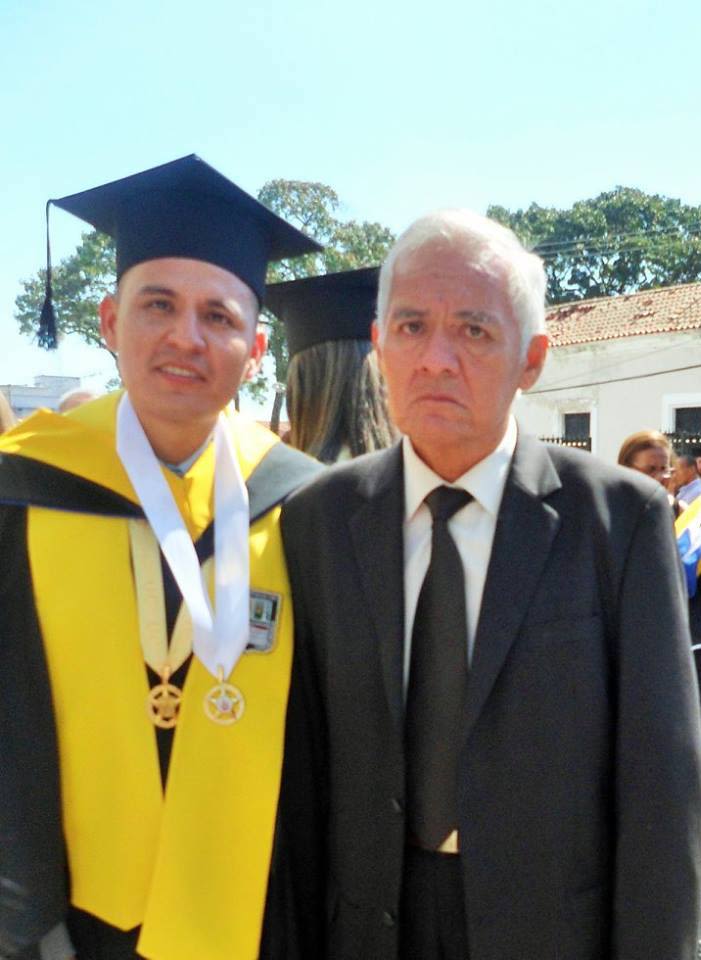
Jhon with his father graudating as an orthopaedic traumatology (2017)
Jhon with his father graudating as an orthopaedic traumatology (2017)
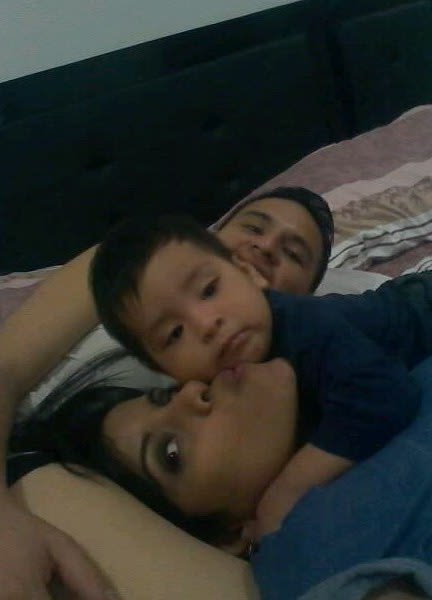
Jhon playing with his family (2016)
Jhon playing with his family (2016)
Although Jhon’s parents were both Peruvian, they met for the first time in Venezuela. They both left Peru in the 1980s, as the country was suffering from the worst economic crisis in its history. Just like Jhon, they were looking for a place with better opportunities.
They settled in Venezuela, which was an attractive destination at the time for immigrants due to its booming economy and high-paying salaries. It was one of the richest countries in the region.

Jhon with his father graudating as an orthopaedic traumatology (2017)
As life would have it, his parents met and married in Venezuela, where they continue to live until this date. They had four children and Jhon was the youngest of them all.
He was born and lived for most of his life in his hometown of Valencia, located in the state of Carabobo, two hours away from Caracas.
He was raised under the values and customs of a typical Peruvian household; he didn’t know it by then, but it was something that would help him later in his life.
Jhon thought that he would live forever in Valencia. After years of studying, he was a surgeon with a speciality in orthopaedic traumatology, he was married to Johanna Moreno and a had a child called Leonel Camilo. However, as the crisis began to aggravate, and he had to set aside those plans.
He worked in three different hospitals and her wife had a job as a lawyer but the money they earned wasn’t enough to live and feed their five-year-old.
“I woke up every day and didn’t know what I was going to eat. Food was really hard to get”, he says “I spent all day thinking: how could I get food to feed my child?”.

Jhon playing with his family (2016)
“One week something had a price and on another (week) the priced had doubled or tripled but we earned the same”.
Inflation and the shortage had taken a toll on them. Buying groceries, however, was its own hell.
Jhon’s Venezuelan ID ended in 7, which under the Venezuelan government’s food rationing programme meant that he could only buy food on Thursdays.
Due to the extreme shortage of food, the state introduced this form of food rationing. You only had one day a week to buy what you needed, and you had a limit on how much you could get. Only one day.
Every day, supermarkets were packed, and queues were miles long. The shortage meant that the first ones in line would get a wider variety of products and those at the back of the queue might not get food at all.
Jhon remembers that if the supermarkets had no food on stock on that day, then those people would lose their chance to buy food for another week. You only had one chance, you had to hope that there was food on that date.
As a doctor, he was a witness to the depressing levels of medicine and equipment shortage in the country. He worked in the best hospital in Valencia, the third biggest city in Venezuela, and saw many people die due to the lack of proper medication.
“You can’t get medicines back there, even simple stuff like pills for blood pressure or medicine for the diabetic. We couldn’t get anything […] people are dying because of health issue and there’s nothing to heal it with”.
According to the Venezuelan parliament, the country suffers from an 85% shortage in medication and 90% deficit of other medical supplies. In 2016, doctors protested, Jhon included, under the chant: “We only have our hands to operate”. And it was true.
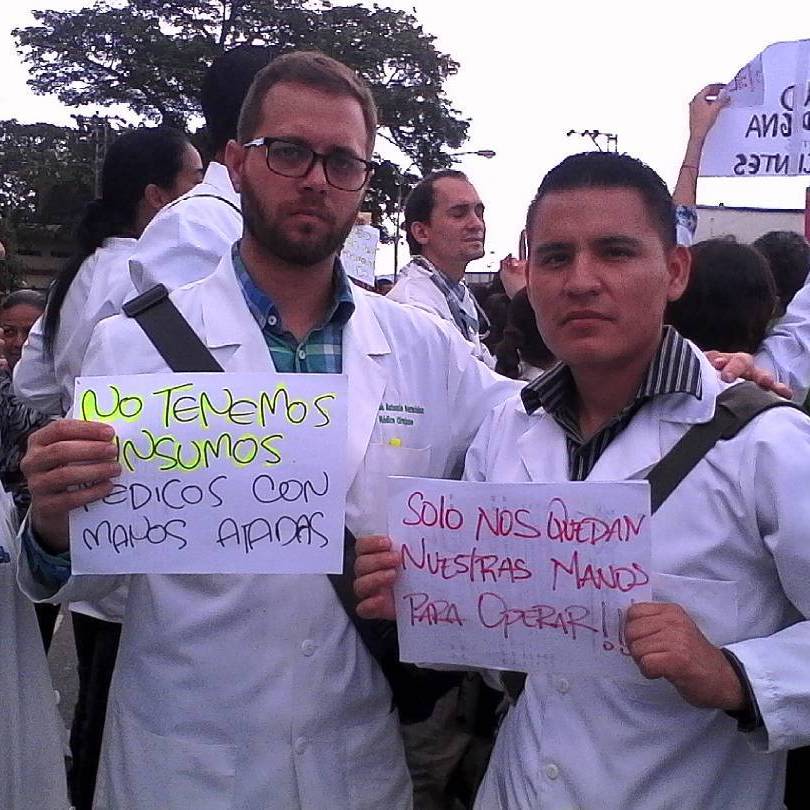
Jhon protesting against the shortage of medicines (2016)
For all that, medicines could be obtained in the black market at a much higher price. But it was impossible to afford for most Venezuelans who lived on a monthly salary of 3 or 4 dollars.
Although both him and his wife, Johanna, had jobs; the situation in the country was unbearable. It wasn’t a place to raise a child.
They didn’t see a promising future in Venezuela, and they were always thinking about leaving the country to find a better life.
Jhon was scared to leave. He would have had to start from scratch and feared how difficult it would all be. He had everything in Venezuela but peace. It wasn’t a good place for his family.
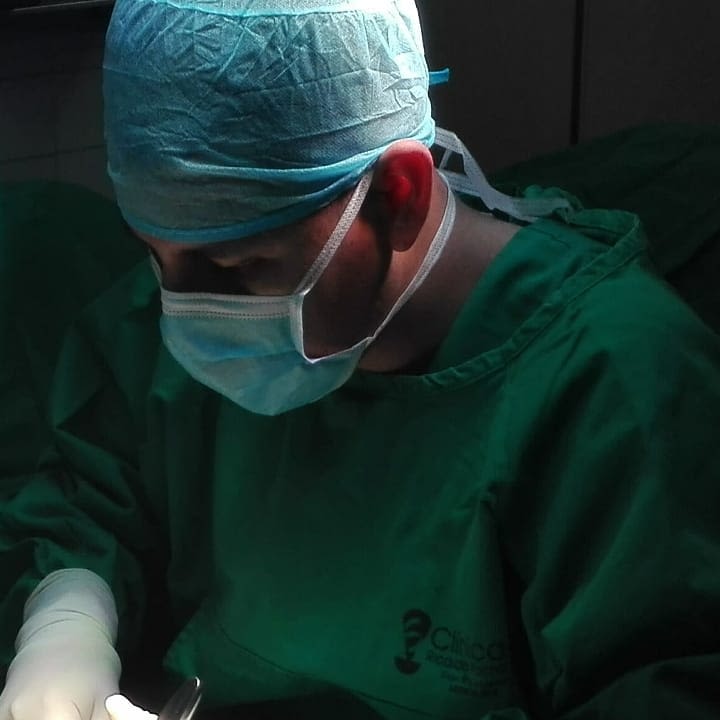
Jhon during a surgery in Peru (2018)
Rather reluctantly, Jhon and his wife decided to leave Venezuela for Peru, the land of his parents. They would start again as a family.
With limited funds and a heart filled with nostalgia, on the 14th of March of 2018, they left Venezuela. Just like his parents once left Peru.

Jhon protesting against the shortage of medicines (2016)
Jhon protesting against the shortage of medicines (2016)

Jhon during a surgery in Peru (2018)
Jhon during a surgery in Peru (2018)
“I still remember it quite clearly, the day we left. We said goodbye to our parents, brothers, life-long friends and we left everything back in Venezuela and in one small suitcase, we had to pack our entire life”.
Alongside his wife and his 2-year-old son, Jhon began the 5-day bus journey that would take them to Lima.
As they approached the border that divides Venezuela and Colombia, Jhon still carries with him the image of what he saw.
“I was told that I was going to find some Venezuelans at the border who were escaping as well. But I was shocked to see the immense number of people leaving the country. There were thousands of us. All of us carrying the entire story of lives in a suitcase”.
"We said goodbye to our parents, brothers, life-long friends and we left everything"
The journey was rough. They went through warm and cold temperatures as they cruised through Colombia and Ecuador, in uncomfortable buses; only armed with a limited supply of food to share among the three of them.
The buses were filled with Venezuelans, all of them heading to a different direction.
“We all told each other what we did and what we left behind in Venezuela. All of them had dreams, goals to do something to help their family out in Venezuela” says Jhon.
On the 19th of March, Jhon and his family arrived in Lima. They were starting over again.
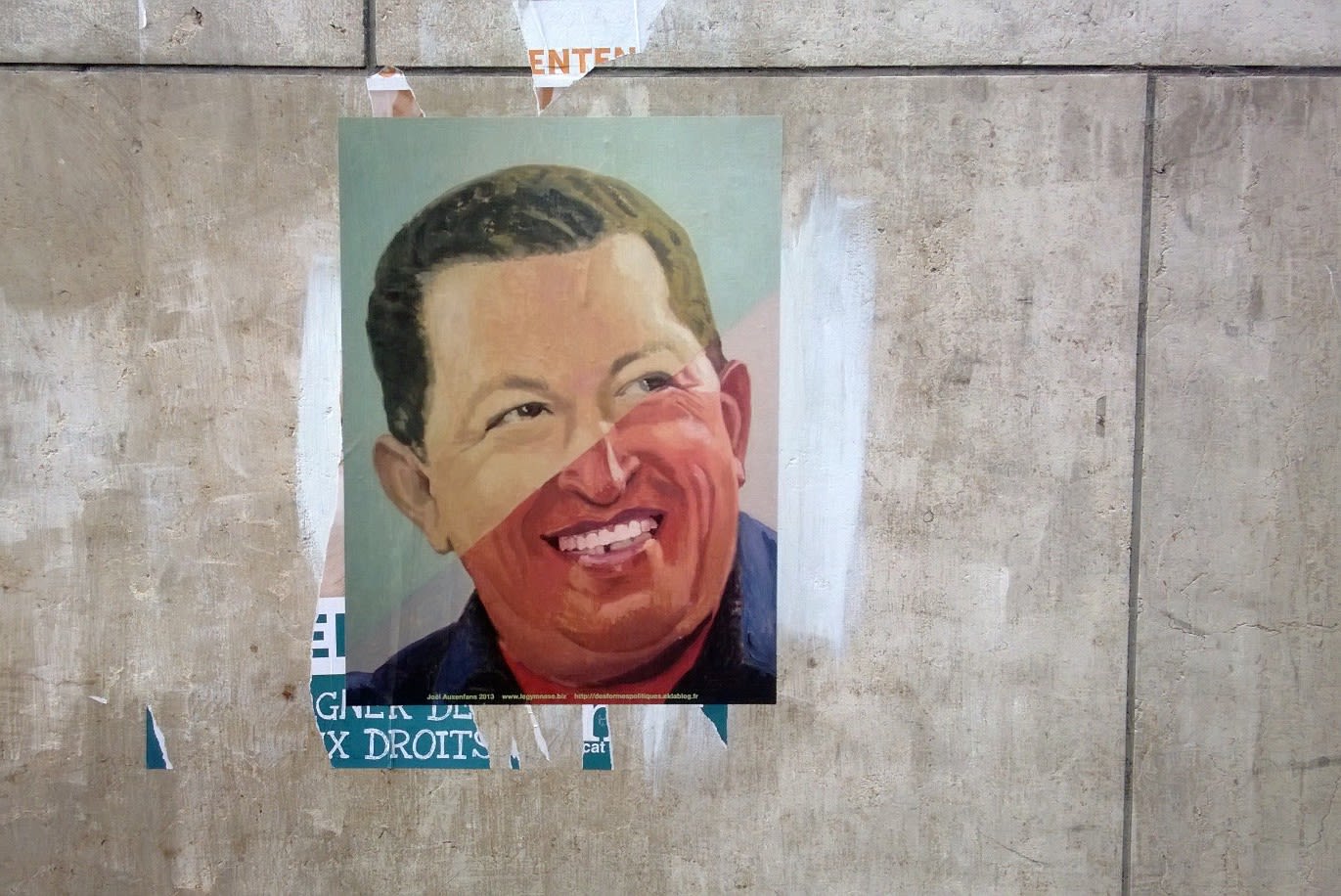
Although Jhon’s parents were Peruvian, he didn’t know any relatives that would take him and his family in. After all, he had only been to Peru on a couple of occasions for the holidays.
On the day they arrived, they began looking for a place to spend the night. Jhon knew that he couldn’t afford to stay in a hotel or a hostel as they only had a limited supply of money that would only last for three months.
They began to walk around Lima with their luggage in their hands, looking for somewhere to stay. After hours of unsuccessful attempts, they found this small flat in the north of Lima.
In order to save money, Jhon got in touch with his two brothers had arrived in Peru two weeks before him but, were yet to find a steady place where to stay.
They gathered together and rented the flat, a flat where they are all still living in.
The next morning, Jhon and his wife began to look for a job. She couldn’t practice her profession in Peru but Jhon could validate his Medicine degree and work in the country. Despite his desire to return to the profession he loved, his main focus now was getting a job, and this proved to be extremely tricky for him.
“I’ve always only dedicated myself to studying to become a doctor. I didn’t know how to do any other thing"
"I didn’t have the paperwork yet (to be a doctor in Peru), I kept asking my wife: what do I do?”
As Jhon struggled to find a job, his wife started working as a waitress in a restaurant. She provided a steady income for the family for the first three weeks until he finally landed a job as a medical assistant in a private surgery. It was the closest thing that he could find to his profession.
With the guarantee of a constant income. Jhon began to study to validate his medical degree in Peru.
“I wanted to help my family and from the moment I arrived in Peru I had one goal: to practice medicine here and it wouldn’t be easy”.
In order to licence his medical degree, he would have to pay and take an exam on general medicine topics, some of which he hadn’t seen in ages.
However, after a few months studying and working, Jhon validated his medical degree on the 24th of July.
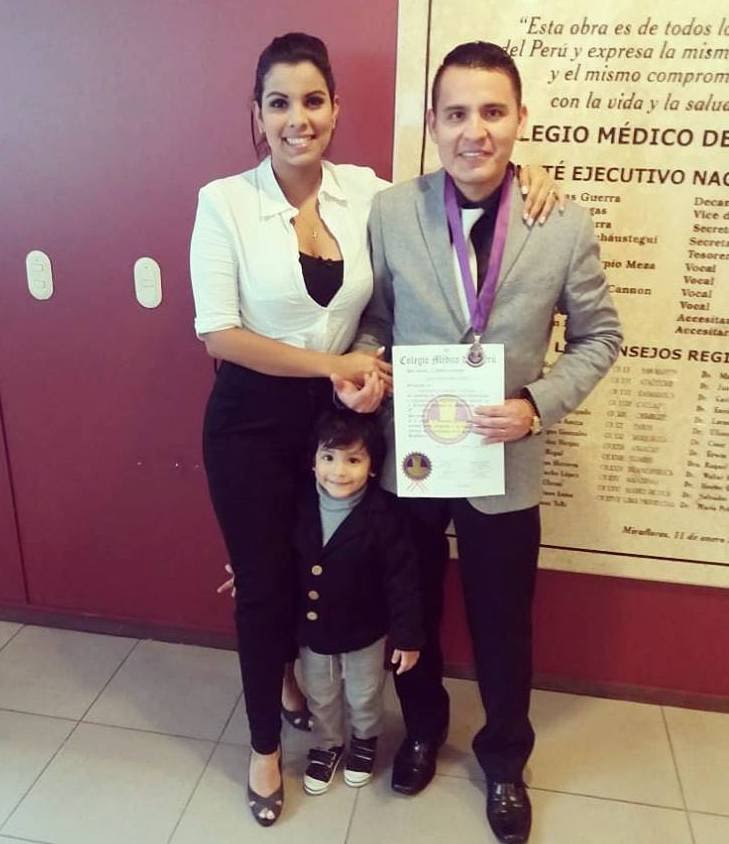
Jhon receiving his licence to practice medicine in Peru (2018)
Jhon receiving his licence to practice medicine in Peru (2018)
Almost immediately, he began going to every hospital he could to find to get a job as a doctor and after a couple of days, he found a job in his area of expertise in a well-known hospital.
After nearly fourth months, he had achieved his goal. It had been four excruciating months but things would get better from now on. Looking back at those months, Jhon remembers how much they struggled to get there, “the first months were really difficult, we had a very limited budget, which we were running out of, and it seemed like we were living like in Venezuela, not knowing what we would eat tomorrow”.
Those months were particularly difficult for his son.
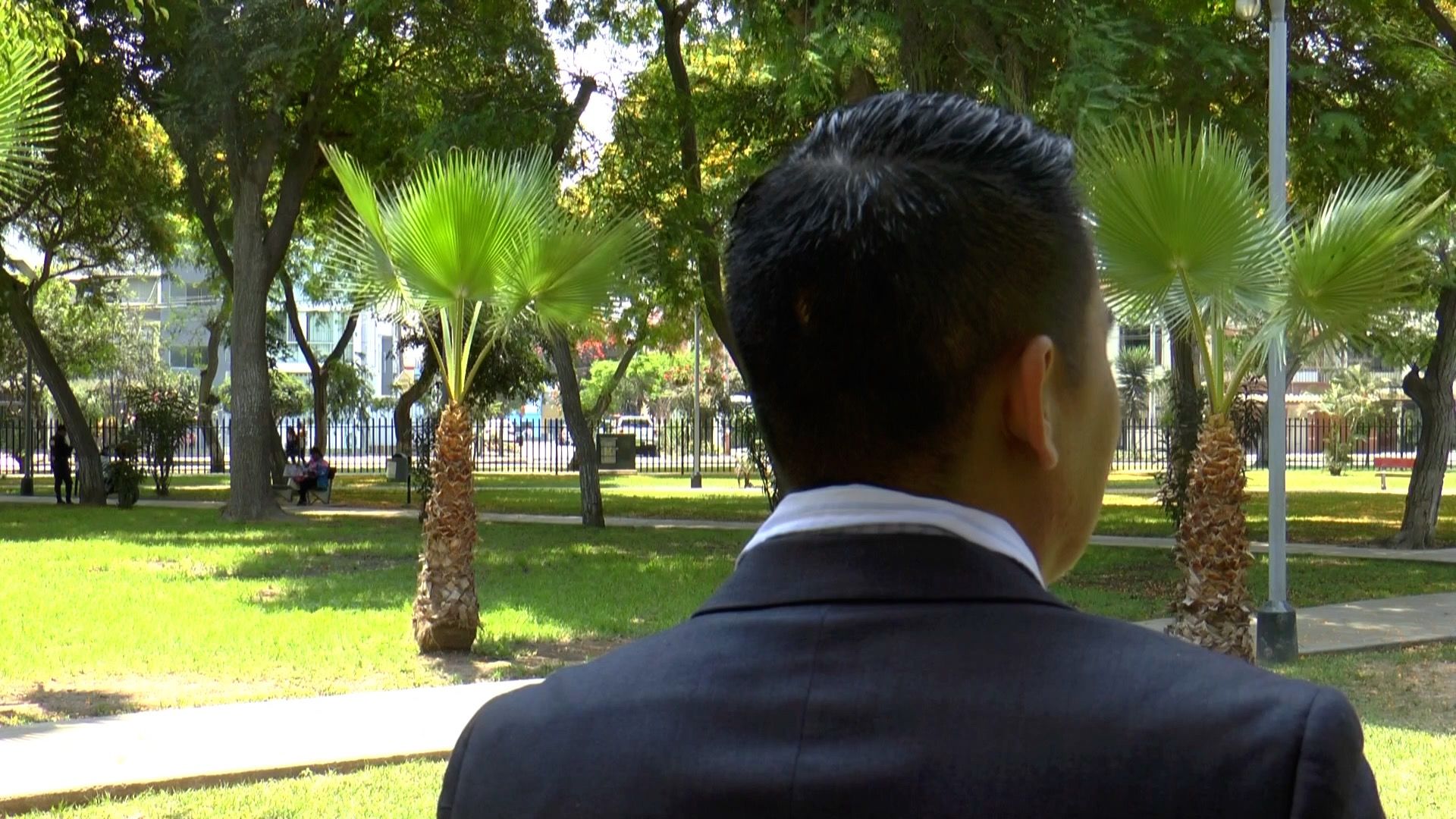
3-year-old Leonel Camilo was born in the midst of the crisis. Jhon and his wife struggled to feed him in Venezuela and he never knew anything but the streets of Valencia.
He is Jhon’s only child and one of the main reasons why he left Venezuela. It wasn’t the place to raise a child.
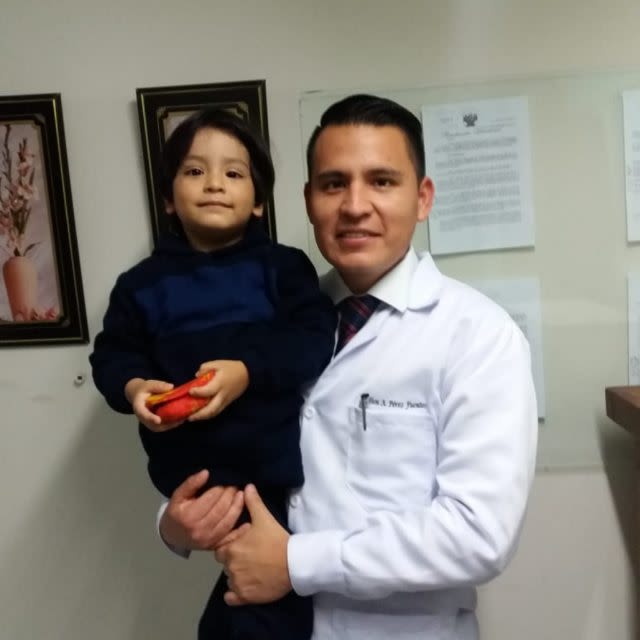
Jhon and his son Leonel Camilo (2018)
Jhon and his son Leonel Camilo (2018)
“Exposing my son to all of this; hurt me, it hurt me, but it was necessary”, he says remembering all that they went through to get to this moment.
“My son saw it (leaving the country) as a trip. He is oblivious to all of this, to all of this that we’ve been through but when he comes here and plays in a park, you can see his joy.
Not like back in Venezuela where we had him in a nursery, pretty much locked up. But here it is something else.”
Jhon can’t help but cry when he mentions his son.
"My son is oblivious to all of this"
"My son is oblivious to all of this"
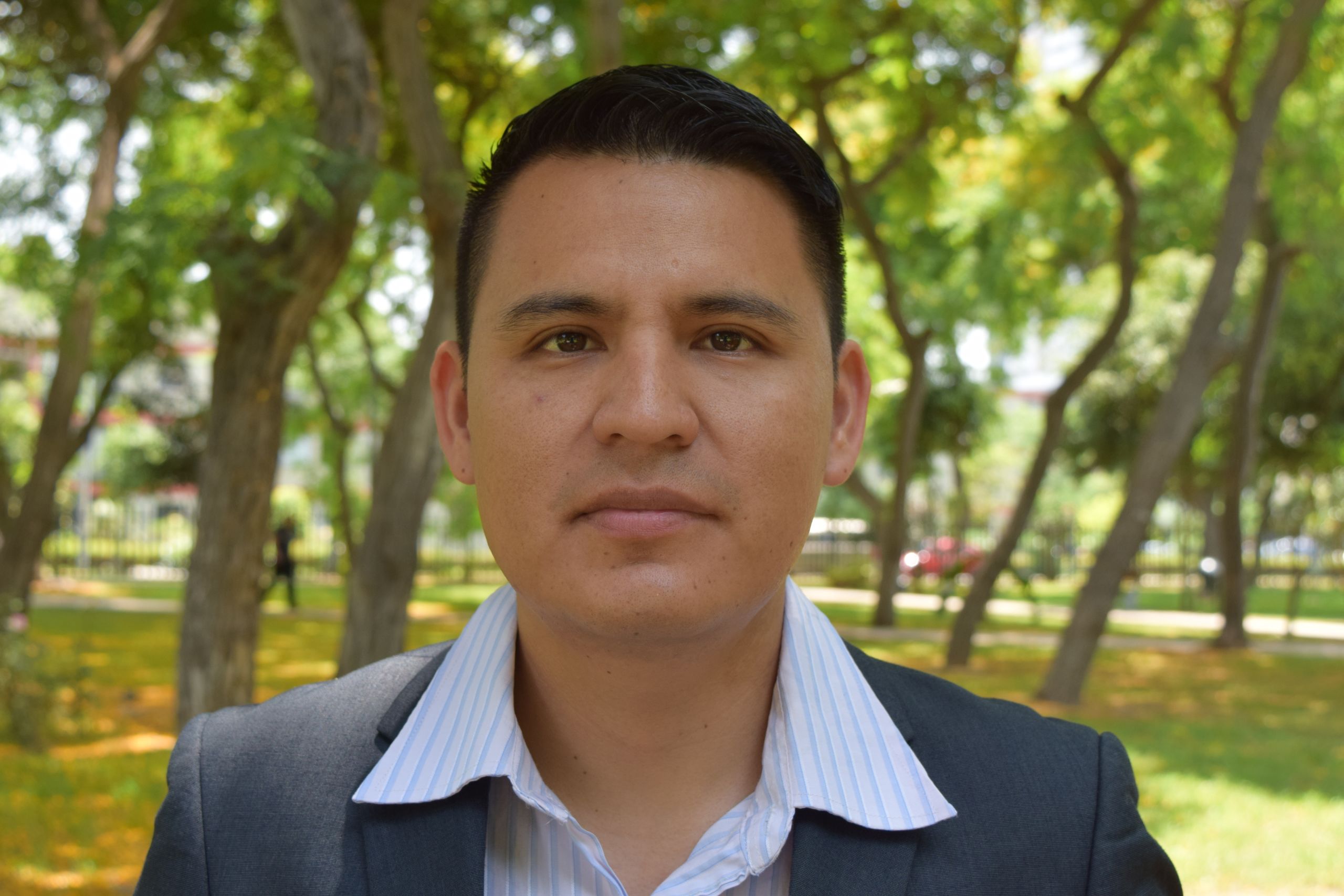
John has now been in Peru for more than one year. He has finally found stability after landing a job as a doctor, a position he has held in the same hospital since July.
He is now a more comfortable position and even saved up enough money to throw his son a birthday party.
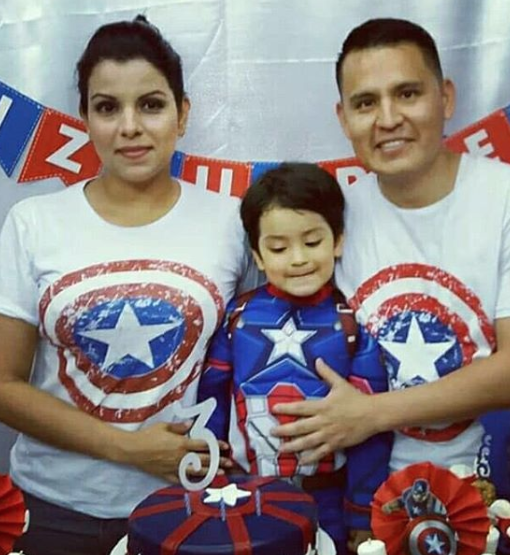
Leonel Camilo's third birthday party in Lima (2018)
His future, however, is still unclear. When he first left, he thought that he would only be in Peru for a short stint and that after Venezuela got fixed, he would go back to his life. At least that’s how most Venezuelans see the situation, “I remember telling my wife ‘look we work and if someday our country gets fixed, we go back’”.
However, starting from scratch -again- discourages him. He has now found financial stability and if he can maintain it, then he probably wouldn’t see a reason to come back. Despite how much he misses his country.
Since he left, thousands have continued to escape, and he has received some criticism for his decision to leave.
“Many people tell me. Is that the easiest idea you had? To leave the country? And leave it in that condition”.
But he says that they couldn’t be any further from the truth as Venezuelans who leave the country also suffer in a different way as they attempt to make a new life for themselves in an unknown country.
“We are all going through a lot. But as we say in Venezuela ‘pa adelante’ (let’s move forward)”.

Leonel Camilo's third birthday party in Lima (2018)
Leonel Camilo's third birthday party in Lima (2018)

